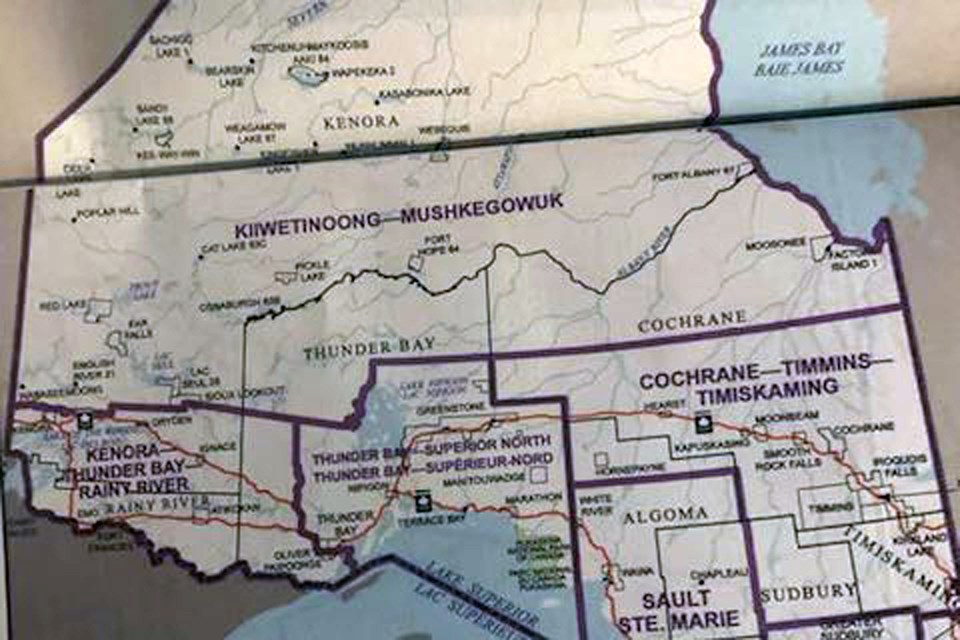Businesses from Northern Ontario's largest cities have added their voice to a chorus of opposition to proposed changes to federal electoral boundaries that would reduce the region's representation in Ottawa.
The Northern Chambers of Commerce, which speaks on behalf of local chambers in Thunder Bay, Sudbury, Sault Ste. Marie, Timmins, and North Bay, conveyed its concerns in an open letter released Wednesday.
Adjustments proposed by the Federal Electoral Boundaries Commission for Ontario would reduce the number of ridings in Northern Ontario from 10 to nine, merging the Kenora and Red Lake areas into Thunder Bay-Rainy River, with other parts of the Kenora riding joining a new, sparsely populated Kiiwetinoong-Mushkegowuk riding taking in remote Indigenous communities between Manitoba and Quebec.
The letter argues that simply applying a population-based formula to redistribute ridings in the region will create the unintended consequence of removing a voice from an "already underrepresented" region of the country.
“Our ability to advocate through our members of parliament would be reduced, which would pose a challenge to business organizations and their ability to serve their members' needs.”
“The new proposed boundary lines would further exacerbate challenges in an already expansive territory, not to mention the challenge that would pose for any one representative to cover the issues of that entire geographical area,” it continues.
The letter is addressed to Stéphane Perrault, Canada's Chief Electoral Officer, and copied to Northern Ontario MPs.
MPs in the region have signed a joint letter expressing similar concerns, saying the changes could weaken representation for residents.
The letter also argued removing a representative and expanding current riding boundaries could impede political participation by Indigenous peoples living in these remote and rural regions.
“The Northern Chambers... find this constitutionally-triggered process to be archaic and unintentionally discriminatory by not accounting for underrepresented and under-serviced groups in the region deserving of equity," it reads.
The Northern Ontario Chambers of Commerce said that's a particular concern for its members given their strong commitment to principles of economic reconciliation.
“The Indigenous are Canada's fastest growing population, not only leading strong, legacy enterprises in their own right but lending to new and innovative practices that support and bolster business and their workforce,” the letter read.
“Elections Canada must commit to principles of Truth and Reconciliation, and an important step would be maintaining the current number of ridings in Northern Ontario.”
